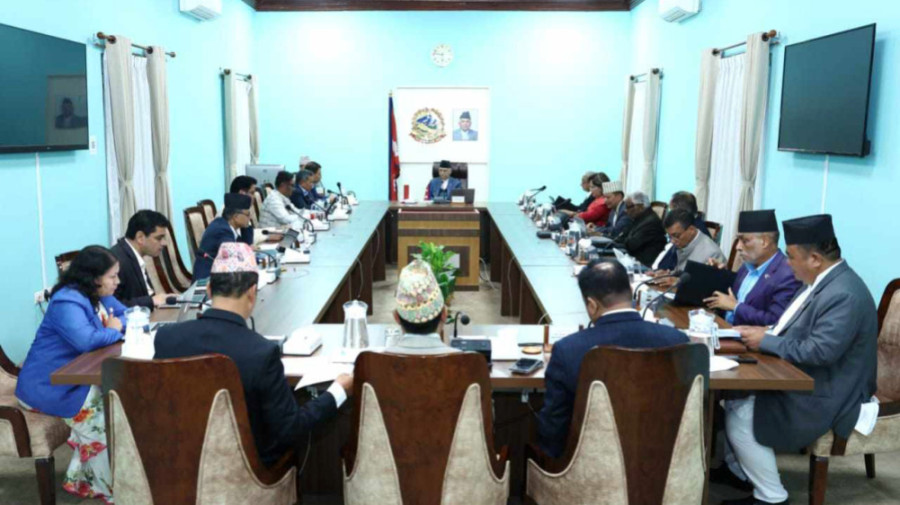National
Oli, ministers yet to disclose their assets
Publishing property details promotes transparency: Experts
Post Report
Even after 100 days since the formation of the KP Sharma Oli-led coalition government, Cabinet members have yet to disclose their property details.
Although disclosing the ministers’ property details is not mandatory, the practice is an effort to hold public office bearers accountable and encourage transparency.
In Oli’s earlier stints as prime minister, Cabinet members disclosed their property details.
Officials at the Prime Minister’s Office said they have received property statements from the ministers.
However, a PMO official said that this administration, like many previous ones, is hesitating to make the ministers’ property details public.
“Soon after the Cabinet decides to disclose their property details, the ministers face backlash,” the official told the Post on the condition of anonymity. “That might be why, despite receiving the property details, the Cabinet has yet to make it public.”
According to the Nepal Gazette published on July 4, 2018, the prime minister, ministers and state ministers must submit their property details to the Office of the Prime Minister and the Council of Ministers. Such details should be sent to the National Vigilance Centre within 2 months. It is an old practice to publish such details.
Section 50 of the Prevention of Corruption Act 2002 requires public position holders to submit their property statements within 60 days of assuming public office and at the end of each fiscal year.
“Whoever joins a public office shall, within 60 days from the date of joining the public office, and whoever is engaged in a public office on the date of commencement of this section shall, within 60 days from the date of commencement of this Act, and after that, within 60 days from the date of completion of each fiscal year, submit the updated statement of property in his/her name or the name of his/her family members, along with the sources or evidence thereof, to the body of authority,” reads the Act.
However, subsection 50(4) of the Act also states that the submitted details may be confidential.
Since the constitution protects a person’s property, disclosing it depends on personal discretion. Article 28 of the constitution guarantees the right to privacy.
“The privacy of any person, his or her residence, property, documents, data, correspondence, and matters relating to his or her character shall, except by the law, be inviolable,” reads the Article.
Former Chief Secretary Bimal Koirala recalls that in the past, the property details shared by the ministers were published after a Cabinet decision.
They are legally bound to submit the property details to the Prime Minister’s Office, but those submitted details are not legally bound to be made public. However, the government formed after the 1990 people's movement set a tradition of making them public.
Koirala said this tradition was broken when the Cabinet was chaired by sitting chief justice Khilraj Regmi.
“It is the moral responsibility of the prime minister and ministers to be transparent by informing the public about their assets when coming into and going out of office,” Koirala told the Post. “But the ministers may have shied away from this because questions are raised about their assets.”
Koirala further said that the recent prime ministers and ministers have not realised the seriousness of publicising property details. “If such a trend prevails, the country’s governance system will weaken,” he said. “If you talk about good governance on paper but are not transparent while in public office, it will affect governance.”
Krishna Gyawali, a former government secretary, says publishing the property details of ministers should be legally binding because the people in power might hide their assets.
“If the public gets to know their property while and after they are in power, then only are the differences known,” Gyawali told the Post.
“Since people in power tend to amass property through irregularities, to prevent this, their property details must be made public. The records should be up for public scrutiny.”
Prithvi Subba Gurung, the government spokesperson and minister for communication and information, said the details would be published “soon”.
“We were supposed to submit the details within two months of assuming office, which we did,” Gurung told the Post. “It will be published sometime soon.”




 8.22°C Kathmandu
8.22°C Kathmandu













